When Commissioner Kenneth G. Hodder returned to the U.S. after 11 years living abroad, he said he was taken aback by the number of people he saw living on the streets—in tents, below freeway underpasses, and at the base of our cities’ skyscrapers.
He returned to the West coast to lead The Salvation Army here and knew The Salvation Army had to act.
The organization began in London in 1865 as William Booth walked the streets preaching to the homeless, the hungry and the destitute. What became The Salvation Army set out to offer compassionate, tangible service to people in need—you may have even heard the motto: Soup, Soap and Salvation.
Now that service extends to more than 130 countries around the world and to every zip code here in the U.S. as The Salvation Army works to meet human need in every community—exactly as that community needs.
A graduate of Harvard Law School, Commissioner Hodder has served as a Salvation Army officer for 31 years—ministering in communities from Glendale, California, to Kakamega, Kenya.
In this episode, he shares more about The Way Out—a Salvation Army initiative in the West to not only address the epidemic of homelessness, but to double The Salvation Army’s impact—because as Commissioner Hodder says: there is no one better poised to do so.
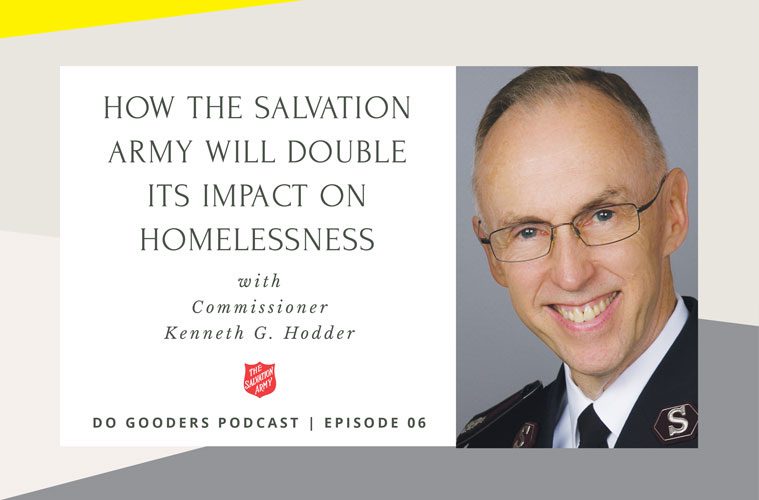
Show highlights include:
- What it means to be a Territorial Commander: Commissioner Hodder and his wife, Commissioner Jolene K. Hodder, are responsible for The Salvation Army’s work from the Eastern border of Wyoming to Guam and Saipan.
- What Hodder loves most about The Salvation Army: Flexibility and sense of mission that infuses its programs based on the needs of each community.
- His definition of home: Connection between his identity in Christ and the work he has him doing. Home has never been a geographic location for Hodder.
- Biggest problem Hodder wants to solve: Homelessness (75% in Los Angeles).
- “The Way Out”: Goal is to double The Salvation Army’s impact on homelessess in every community it serves across the Western Territory. Through individual efforts, new programs and expanded facilities, Hodder said he hopes to impact 8 million people by 2024.
- Make a difference: It’s not about throwing money at the problem, specific programs or political agenda; must be consequence of viewpoint and philosophical perspective affecting the human heart.
- Solution: The Salvation Army needs to add or expand its addiction services, educational opportunities, workforce development and housing options.
- Scope of The Way Out: The Salvation Army needs to raise $1 billion in the next five years to solve homelessness.
- Build relationships for recuperative impact on the homeless: Smile, engage and say, “I care about you as a person. I want to do what I can, as simple as it might be.”
- It takes money: The Salvation Army’s partnerships with organizations, corporations and local/state/federal resources, as well as individual support to reach and help as many people as possible.
- Examples of encouragement through efforts:
- The Rady Project: Ernest and Evelyn Rady gave $50 million to help the homeless.
- Orange County 224-bed shelter opening in Anaheim.
- Pathway of Hope program to prevent families from becoming homeless.
- Concept of home from Scripture: Strength of The Salvation Army lies in its commitment to the gospel.
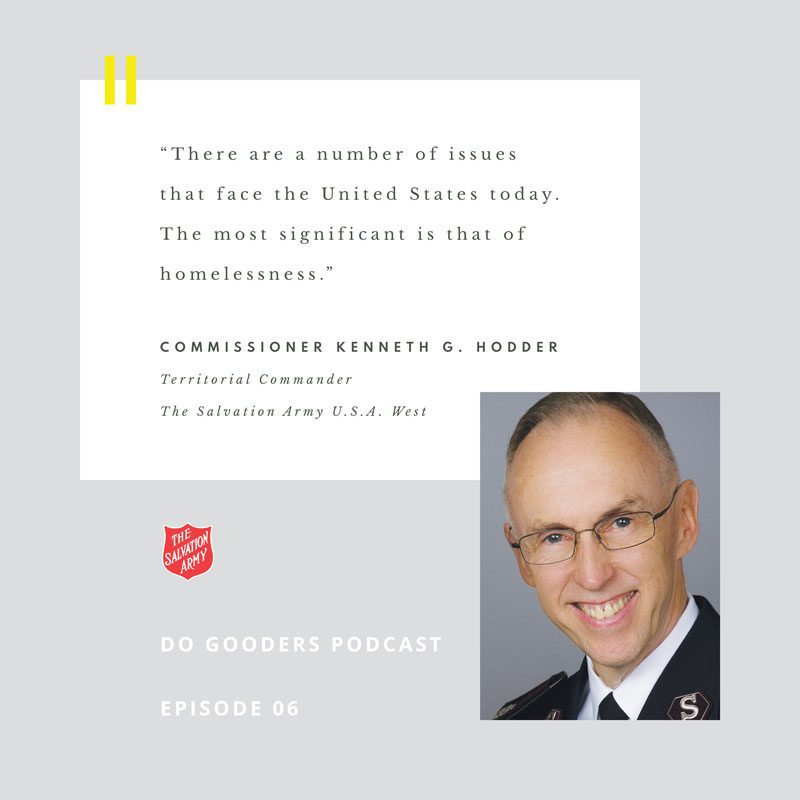
Good words from Commissioner Kenneth G. Hodder in this show:
“The [Salvation] Army’s doing a lot in this part of the world, and it’s our privilege to help lead and inspire and supervise all of that work.”
“The Salvation Army will do anything that needs to be done in the name of Christ.”
“There are a number of issues that face the United States today. The most significant is that of homelessness.”
“The Salvation Army has the most successful drug and alcohol rehabilitation programs, and they’re all free.”
Additional resources:
- The Salvation Army’s Initiative: The Way Out
- U.S. Department of Housing and Urban Development (HUD): Annual Homeless Assessment Report (AHAR)
- The Rady Project
- In Just 79 Days, The Salvation Army OC Celebrates Shelter Opening; A New 224 Bed Shelter Is The First Step Toward Major Moves in Anaheim
- Pathway of Hope
- Travel with Salvation Army USA Western territorial leaders Commissioners Kenneth G. and Jolene K. Hodder to the streets of Long Beach, California, as they set out with a “Brew Crew.” These teams of Adult Rehabilitation Center (ARC) beneficiaries and alumni venture out with backpack coffee dispensers to share Jesus and a simple cup of coffee with people experiencing homelessness. As part of The Way Out effort of the West to double its impact on homelessness in the next five years, Brew Crews from seven ARCs across The Salvation Army West regularly set out in their communities to meet people exactly where they are.
- Visit westernusa.salvationarmy.org to join the fight for good in your community.
- What’s your story? Take our free email course to see why your voice matters and how to find your story.
Download this episode wherever you get your podcasts. Connect with Commissioner Kenneth G. Hodder via The Salvation Army’s USA Western Territory.
[button color=”yellow” size=”normal” alignment=”none” rel=”follow” openin=”newwindow” url=”https://podcasts.apple.com/us/podcast/the-do-gooders-podcast/id1462063355″]SUBSCRIBE AND LEAVE A REVIEW[/button]







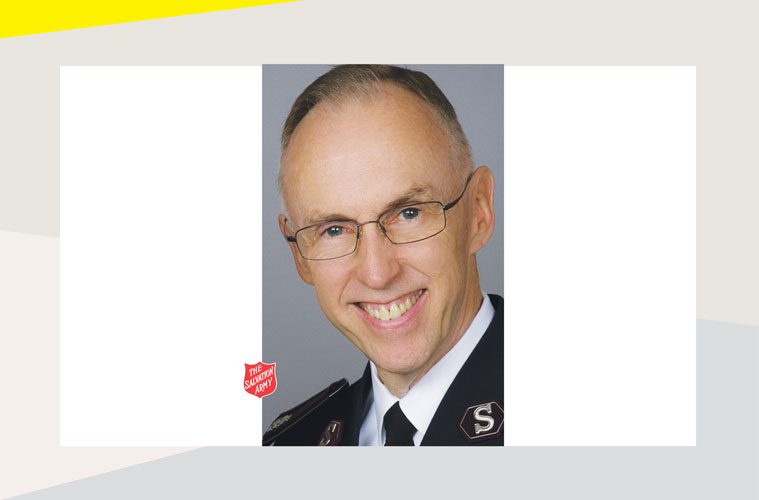
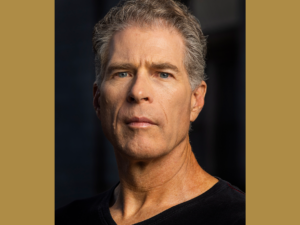

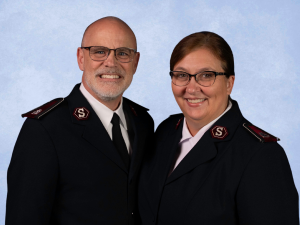
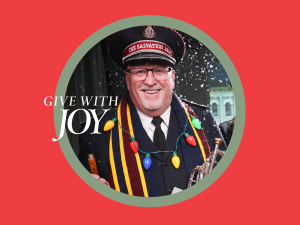
While our local Salvation Army is helping many homeless people off our streets, it is also enabling a significant number of people to stay ON our streets. They are totally accepting of the “homeless lifestyle” and their no-questions-asked handouts make it easy to stay homeless. Once upon a time, they asked questions, required soberity, and avoided enabling vagrancy. No longer…
The homeless are people! There sons, daughters, brothers, sisters, Fathers, Mothers. Many with mental and addiction issues that have consumed there lives. In so many cases affordable housing at the income level these folks have is not available. The first thing any human being needs is acknowledgement. Stop and talk to our homeless neighbors. There stories are vast and increasingly the faces are becoming younger and younger.
My prayer is that practical programs can be built and expended throughout the Territory so that when a child comes with there parent to the Sally there is hope that can be filled with continued steps moving up to self sufficiency so that little child doesn’t have to keep coming back to the shelter.
The adult population needs case managers that understand the tiers of homelessness and know that simply giving some one with mental illness untreated and self medicating themselves for years a list of things to do and expecting there just gonna go do them all isn’t practical.
We of course need our city and County governments on board.
The above has to start with prayer and continue with prayer.
Remember the homeless are people. There God’s creation, each one special.